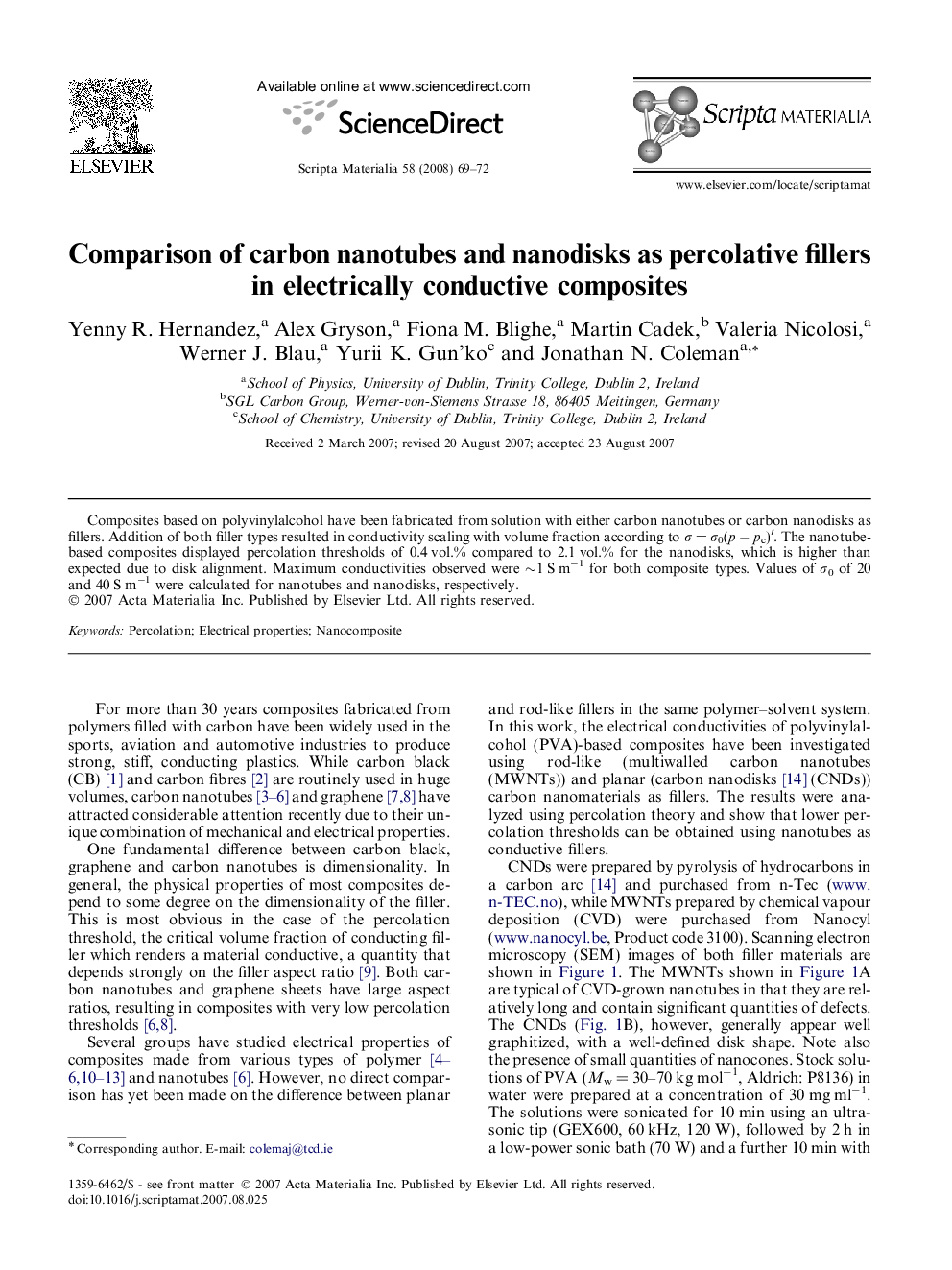| Article ID | Journal | Published Year | Pages | File Type |
|---|---|---|---|---|
| 1503210 | Scripta Materialia | 2008 | 4 Pages |
Abstract
Composites based on polyvinylalcohol have been fabricated from solution with either carbon nanotubes or carbon nanodisks as fillers. Addition of both filler types resulted in conductivity scaling with volume fraction according to σ = σ0(p − pc)t. The nanotube-based composites displayed percolation thresholds of 0.4 vol.% compared to 2.1 vol.% for the nanodisks, which is higher than expected due to disk alignment. Maximum conductivities observed were ∼1 S m−1 for both composite types. Values of σ0 of 20 and 40 S m−1 were calculated for nanotubes and nanodisks, respectively.
Related Topics
Physical Sciences and Engineering
Materials Science
Ceramics and Composites
Authors
Yenny R. Hernandez, Alex Gryson, Fiona M. Blighe, Martin Cadek, Valeria Nicolosi, Werner J. Blau, Yurii K. Gun’ko, Jonathan N. Coleman,
